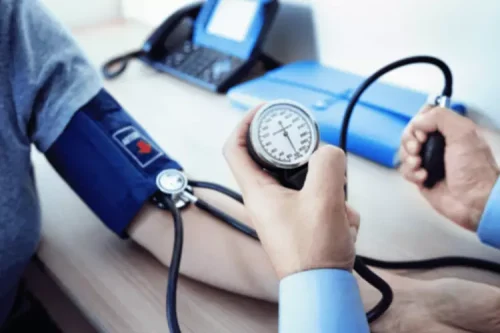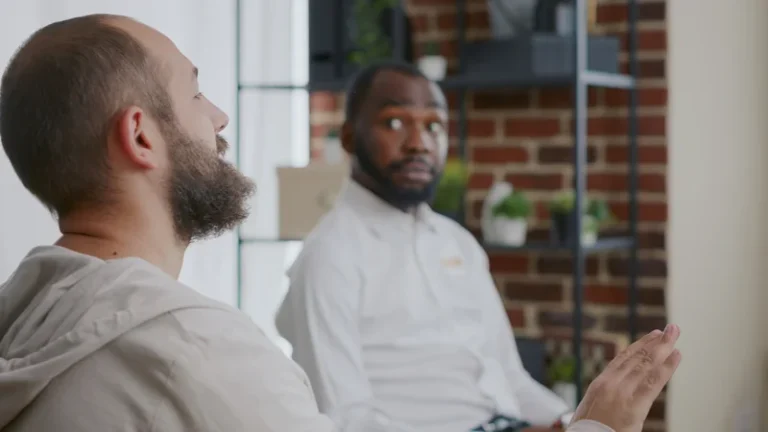
They provide a safe, non-judgmental space for you to explore your relationship with substance abuse. When choosing a sponsor, it’s important to find someone reliable, trustworthy, and understanding. Opening up to family and friends about addiction can be daunting, but these people are often the ones most willing to help you recover and stay sober. It will be helpful to resist the urge to focus on fixing your relationships and keep the focus on making progress in your recovery. As you continue to work on your recovery, your relationships are likely to improve over time. The best way to resolve relationship issues is through slow, incremental change.
- Once you are confident in yourself and feel ready to date, follow these tips to help you start building a positive connection with someone new.
- We strive to create content that is clear, concise, and easy to understand.
- Engaging in toxic relationships can create feelings of frustration, unnecessary stress, and conflict.
How Addiction Impacts Relationships
- It can significantly cause tension and stress in familial relationships when parents, children, or other family members are directly affected or harmed.
- They may want to know why you’ve chosen this particular path because they have questions about their own alcohol or other drug use or are concerned about a family member or friend.
- How many times have you told them that this time things will be different?
Some facilities have aftercare programs, which provide social activities for patients in facilities. They are needed to create deep bonds, for companionship, and to provide the needed emotional support needed to thrive post-rehab. Relationships are effective in helping people in recovery stay healthy and increase their wellbeing. Healthy relationships bring out the best in both parties, and are a safe space for their fears.
Active SUD vs. relationships in recovery

When you have strong relationships with other people, it helps facilitate your personal growth. Building healthy relationships in recovery is one of the more difficult parts of your journey. You may be trying to repair damaged relationships or navigating the world of relationships without the crutch of drugs or alcohol. Recovery is a profound personal journey that significantly affects relationships.
Communication
Some people believe it’s important to be completely upfront and let others know that you are a person in recovery during your very first encounter. Others take the position that it is best to see how the relationship develops and use that information to determine when to disclose. Although rare, there are some work situations in which a person’s recovery status might possibly be held against him or her. There are certain industries where business is frequently conducted around activities where alcohol is served and drinking is customary. Whether you’ve been in recovery previously or this is your first attempt, why should they believe you now?

In recovering from substance abuse and addiction, repairing damaged relationships and rebuilding trust can be a significant challenge. Addiction often strains or even breaks relationships with loved ones, leaving us isolated and disconnected. However, healing and rebuilding these bonds with effort and commitment is possible. https://ecosoberhouse.com/ This article will explore the steps and strategies for repairing relationships, restoring trust, and regaining connection after treating addiction. Whether you are in recovery yourself or supporting someone who is, you can get valuable insights and advice on how to work towards a brighter future in your relationships.
Overall, boundaries help establish healthy connections and protect your emotional well-being. They’re important so you and your loved ones continue to express mutual trust and love while understanding that they are there to help you and not go on your recovery journey for you. Sobriety often necessitates a shift in social circles and environments to avoid triggers and temptations. This change can create an environment where both individuals in recovery and their loved ones are committed to supporting each other’s well-being. By working together to maintain healthy habits and encouraging each other’s growth, relationships can thrive and be a positive force in recovery. During recovery, individuals learn the importance of setting and respecting boundaries.
Support Groups
To have a healthy relationship with yourself, you’ll focus on your recovery and make sure you’re taking care of yourself physically, mentally, and emotionally. Addiction is an illness that infiltrates all of a sufferer’s relationships. Partners and family members become used to living under constant tension and fear. They also often inadvertently enable the behaviour of the person they love.

Building Healthy Relationships in Recovery
But, how do you know when to let others know that you’re in recovery from addiction? Many people have a lot of uncertainty about disclosing their status as a person in recovery in new relationships. Such relationships include new friends, co-workers, and romantic partners. Substance abuse often damages trust and erodes respect within relationships.
Challenges Couples Face in Recovery
By staying sober, communicating effectively, and respecting boundaries, individuals in recovery can make significant strides in mending and enhancing their relationships. Maintaining healthy relationships post-recovery involves mutual support and a desire for the other person to succeed in all areas of life. This support can be an instrumental part of maintaining sobriety and fostering personal growth. Building healthy relationships in recovery is a gradual process that requires patience, effort, and commitment. However, the rewards it brings in terms of personal growth, emotional wellbeing, and successful recovery make it a journey worth undertaking.
If appropriate and possible, make restitution to repair the damage caused. This may involve financial reimbursement, completing obligations, or other forms romantic relationships in recovery of reparative actions as determined by the specific situation. Frustration accompanies this turmoil as they struggle to help while facing resistance.



Leave a Comment